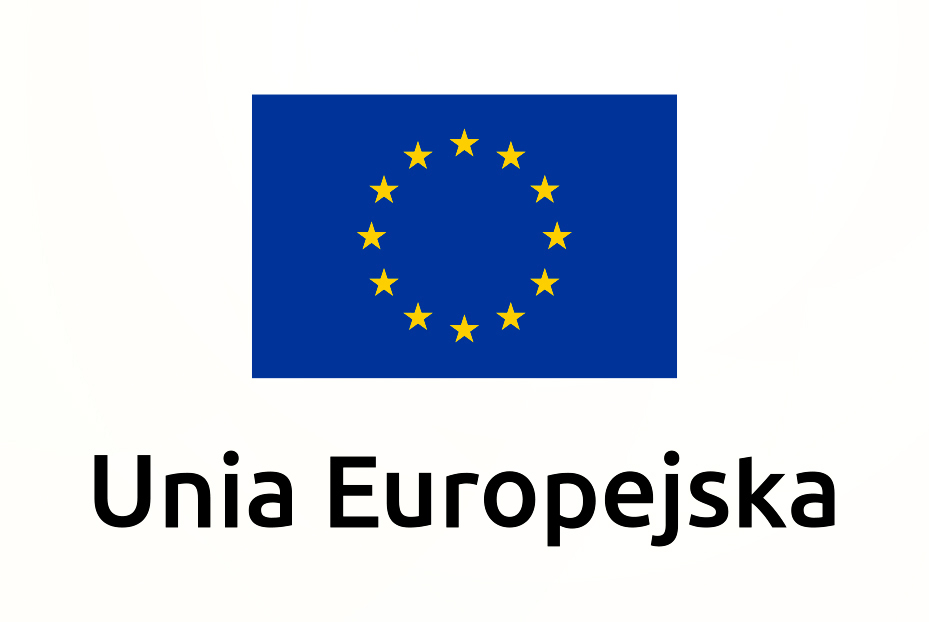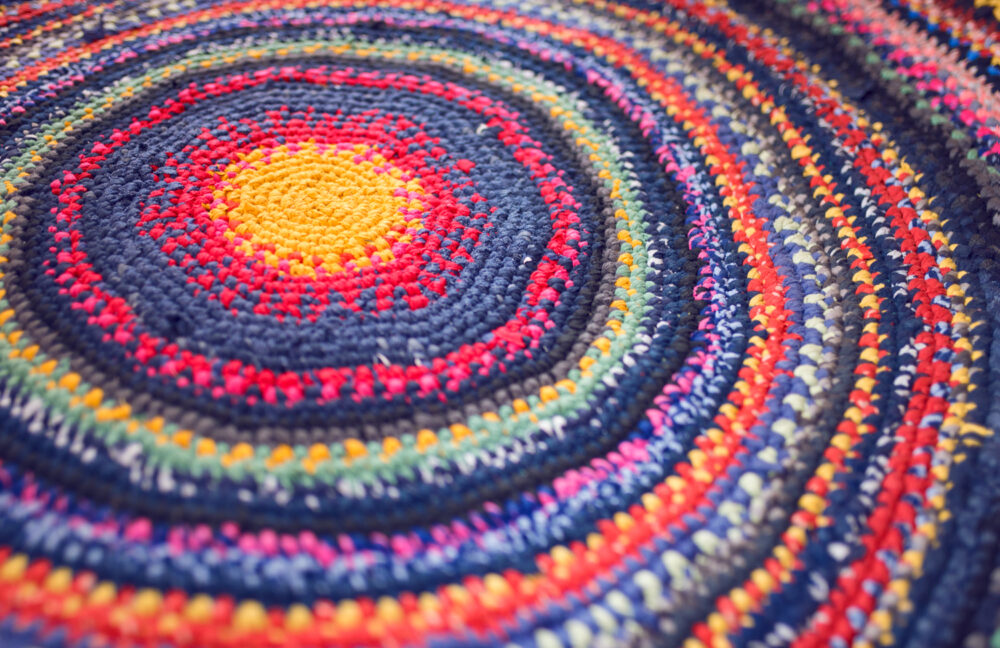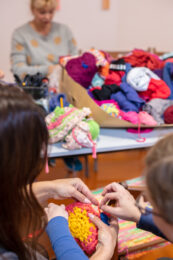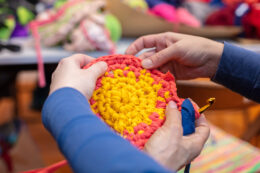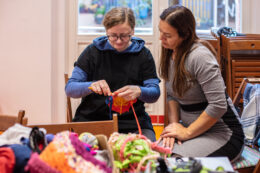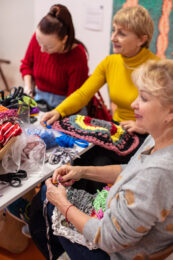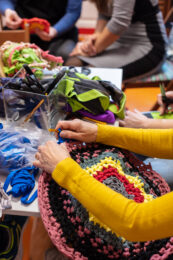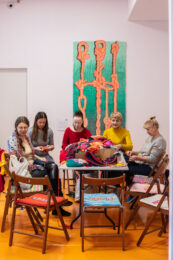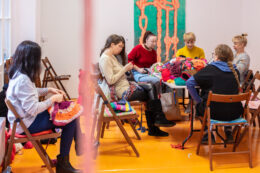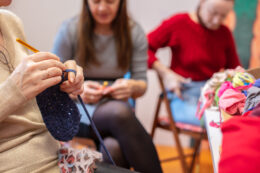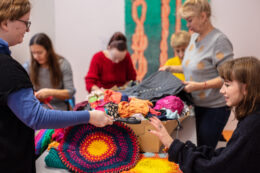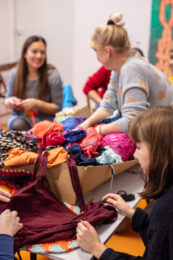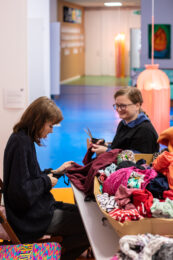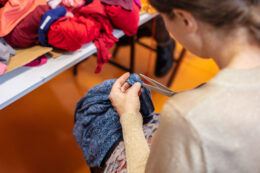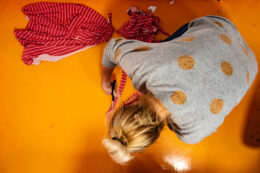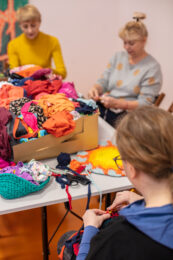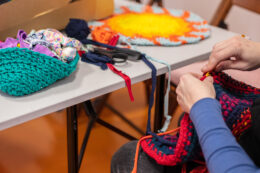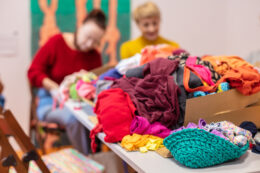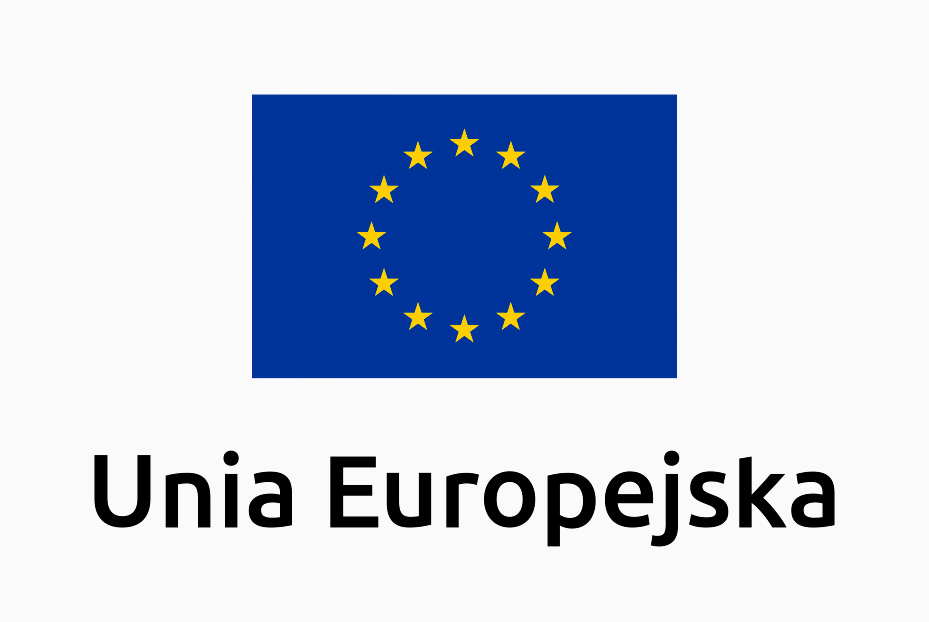Don't waste materials; using old T-shirts cut into narrow strips, yarn, and strings of various thicknesses, make a crochet rug for yourself or a loved one.
After a long, hard journey, all you dream of is relaxing; taking off your soggy shoes that pinch, freeing your feet that are sore from the miles you have travelled, stretching your toes from shoes that are too tight, feeling something soft underneath your freed feet. It seems like nothing—a rug, but it can become your friend, a relaxation after a hard day, it can be a substitute of home for you, something you can take with you when leaving in hurry your place of refuge—your home. It can be your herstory written on a chain stitch. It can be a dream to be fulfilled.
The crocheting workshop is the idea of Kolektyw Analog, which started organizing itself in March, when refugees from Ukraine arrived at Poznań’s central train station. Some migrants stayed in Poznań for a longer period of time, perhaps permanently, so the group’s performance evolved from ad hoc assistance into long-term cooperation in many fields: artistic, social, and activist. The collective’s members are people fleeing the violence of war (Ukraine) and authoritarianism (Belarus), often together with their children, which is why the collective is based on mutual support and care, in addition to creative work. Analog, which operates in a space provided by the Stonewall Group, has become a place where people can meet, get to know each other, drink coffee or tea together, talk, play, exchange information: where to see a doctor, a psychologist, where freeshops are available, what documents are needed when applying to offices and aid institutions. The collective organizes workshops, fundraising events, Polish language lessons, film meetings, and excursions. Workshops are led by Ukrainian, Belarusian, and Polish women.
Monika Wińczyk talks about the group’s activities in this way:
‘Meeting refugee people—mainly women from Ukraine and Belarus in the Analog common room at the workshops—we observed how many of them can embroider, knit, sew, create flower decorations, weave traditional magic dolls that protect household and take care of health and prosperity. We started to exchange skills that we got from our mothers and grandmothers. Sometimes during these classes we sang folk tunes, old songs. Zhenia invited us to a meeting about hankies; Slavka organized a plasticine sculpture workshop, Marina prepared a crocheting class—we made rugs from recycled materials: old T-shirts, pieces of fabric; Monika brought string to make macramé plant hangers; Marcin organized a painting course. All these collective activities were motivated by the need to build trust, to create our small, collective community. Creating together and sharing skills with each other is like returning to the past, like looking to the past for the key for survival in the present.’
- conducted by Marina Sobowska — photographer, member of the Kolektyw Analog [Analog Collective], graduate of the University of Arts in Poznań. She is a Belarusian living in Poland since 2006
- number of participants: 15
- enrolment at e-mail address: mateusz.nowacki@arsenal.art.pl
- Materials will be provided by the organizers.
